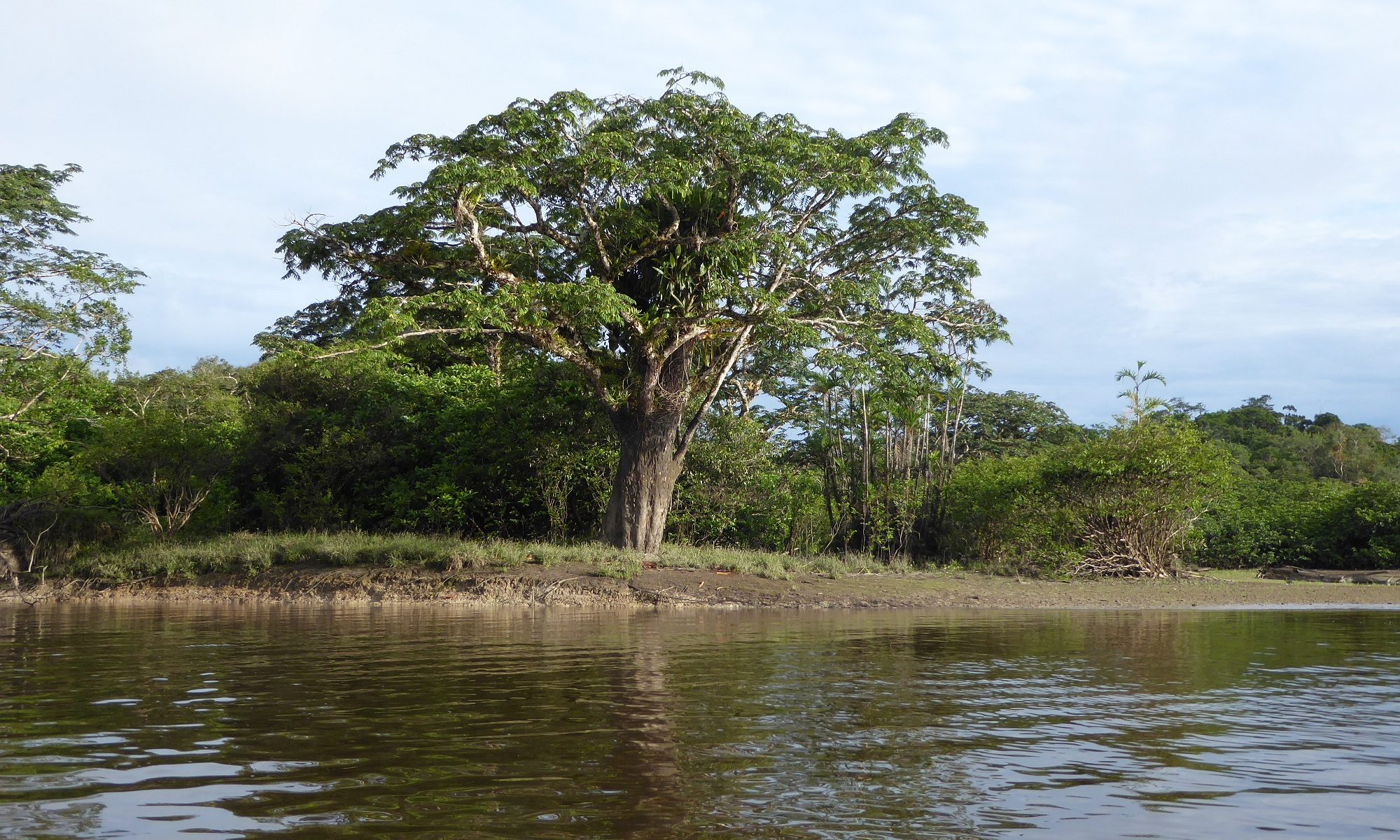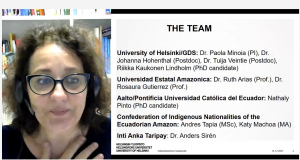We have participated in the Webinar organized by the Academy of Finland in cooperation with the Finnish Ministry of Foreign Affairs. We have presented our team and project location, and then the research focus, methodology and preliminary findings. Here below I report some excerpts from the presentation, but first of all, I have acknowledged all research collaborators. Their names are in the following slide.
“The theme of our research project is located at the intersection between the accomplishment of the right to education for all, as stated by the SDG4, and the right to pertinent education, as stated by the United Nations Declaration on the Rights for Indigenous Peoples of 2007. In a country that is Plurinational by Constitution, Education contributes significantly to reinforcing political emancipation and territorial self-determination of indigenous peoples. This intersection has been articulated through programmes of Intercultural Bilingual Education (IBE). For indigenous students, IBE means to support emancipatory pathways via revitalization of traditional languages, land-based knowledges, and philosophies of life that respect humans and non-humans in nature. These components form a whole that can maintain their identities against rural-urban migration and assimilation into the urban-Hispanic hegemonic culture. Intercultural education is an education that can represent a way for young indigenous people to exit marginalization and poverty, not as individuals but within their own communities and indigenous nationalities. The preservation of indigenous communities on their lands can guarantee protection of ecological diversity against land use changes, and especially deforestation and extractive mining that cause environmental and climate changes.
In methodological terms, we looked at different policies of education and their contingent impacts in terms of access, pedagogies and results, through different tools. The research methodology has been mainly qualitative and we have used interviews, walking interviews, focus groups, mapping, and projects of caring through design in times of Covid-19.
Some of the research foci have been:
- Analysis of policies, conflicts and negotiations on education between State ministries and indigenous organizations; considering that in some cases, they were not alone but closely linked to negotiations for territorial rights and environmental planning. Examples are Planes de Vida (life plans) of the kichwas that see students as important agents.
- Analysis with statistics on schooling of indigenous and rural peoples in Pastaza; and statistics of students of the Universidad Estatal Amazonica (UEA) that self-identify as members of indigenous nationalities. There has been an increase of students who identify as Indigenous at the national level and in the UEA in the past years. The work has also provided an analysis of the problems in the transition between secondary and tertiary education, and between school and work related to the acquired education.
- Analysis of school topics and their reference to environmental sustainability; and of educational materials and pedagogies that have been used with the aim to revitalize indigenous knowledge, onto-epistemic plurality and inter-generational learning.
- Analysis of home-school mobility and school accessibility, especially considering some recent turbulences (or challenges) posed by the Organic Law on Education, by strikes, and by Covid-19: showing the importance to integrate socio-cultural, territorial and mobility justice perspectives into the global agenda of quality education, and also looking at the importance of the envirionmental and territorial engagement of students who attend schooling in their communities. .
- Accessibility has also been studied in terms of digital divide especially during the Covid-19 that has exacerbated educational inequalities, to which the state response has been weak. The UEA has self-organised distribution of laptops and gigabites thanks to other private funding. A subproject has build networks of information and care between the UEA and student of the Pontificia Universidad Catholica del Ecuador.
Until 30.12.21 you can watch the replay from the webinar here. The presentation of our project starts at the 1:45′.

